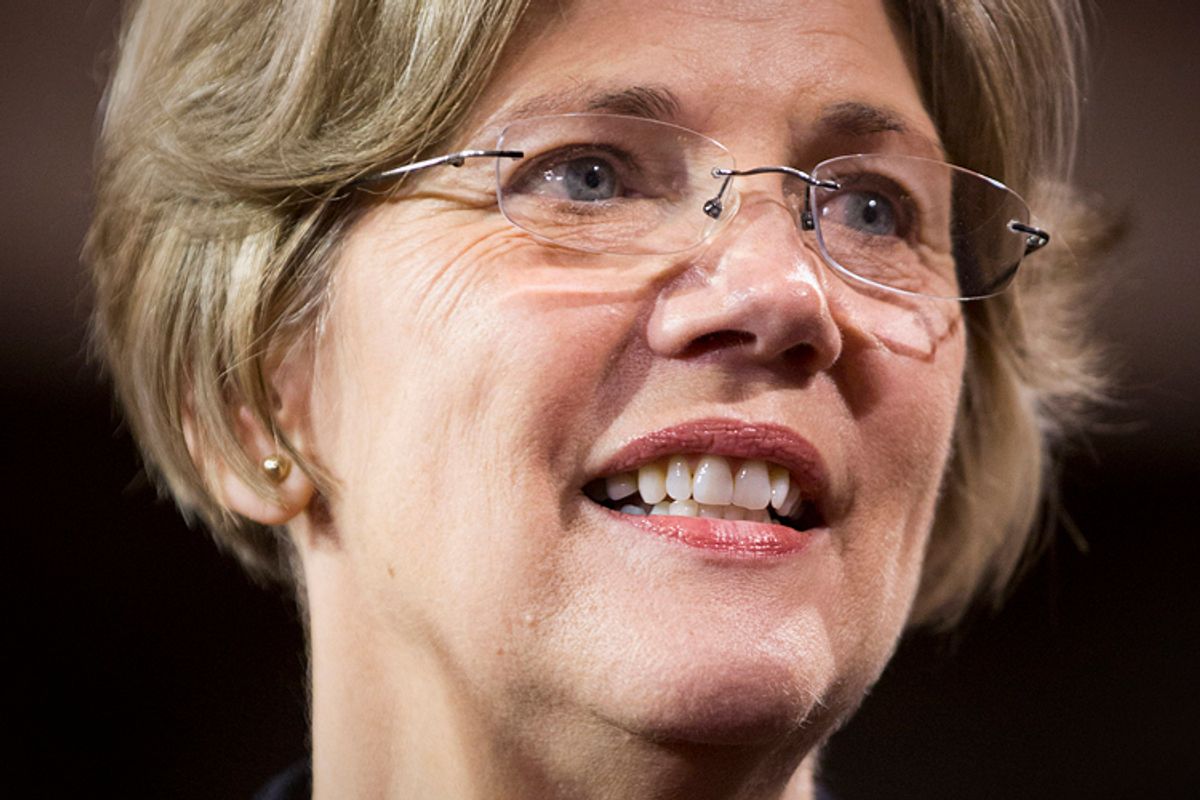Democratic defenders of the "cromnibus" -- no, we haven't forgotten that horrid word quite yet -- have defended the inclusion of a Citigroup-written rider relaxing derivatives regulation in much the same way: It could have been worse. The White House, and Democratic appropriators, argue that giving in on the swaps pushout rule was a relatively minor concession compared to all the Dodd-Frank regulations and funding it preserved.
First, they claim that it won funding for the Commodity Futures Trading Commission and the Security and Exchange Commission -- a trade floated by the banking lobbyists themselves, who were apparently the lead negotiators here. Sure enough, the SEC and CFTC each got sizable budget increases in a bill that left them with fewer regulations to enforce. (In Washington it's considered a major victory to get a budget increase even if you marginalize your own case in the process.)
Along with the funding gains, Democratic negotiators argue that agreeing to the provision gave them leverage to kick away various other bilious riders pushed by the financial sector.
Meanwhile, Mikulski was one of the members of Congress in charge of negotiating the broader spending legislation. House Republicans had earlier this year passed a spending bill, in which they inserted a provision undoing the swaps rule without Democratic objection at an appropriations committee hearing. Mikulski took to negotiating a $35 million funding increase for the CFTC in return for the provision while trying to fend off other attacks on Dodd-Frank.
“She simultaneously knocked down six terrible riders that would have watered down or weakened Dodd-Frank,” according to an e-mail from an appropriations committee spokesman.
That it's a trade worth making in isolation, as if this were the last time negotiations would ever be held over Dodd-Frank, is a reasonable argument. But it turns out that this "cromnibus" was not the final piece of legislation that Congress would ever consider. Rumor is that there's even a whole new Congress starting work in a couple of weeks -- you guys hear about this too, hmm? And all that additional stuff that banking lobbyists wanted last week but didn't get? They still want it, and still intend to push for it. What a strange twist of events!
Banks and financial institutions are planning an aggressive push to dismantle parts of the Wall Street reform law when Republicans take control of Congress in January.
Fresh off a victory in the government funding debate that liberals decried as a giveaway to Wall Street, advocates for the financial sector aim to pursue additional changes to Dodd-Frank that they say would lighten burdens created by the 2010 law. Among the top items on the wish list: easing new requirements on mortgages, loosening restrictions on financial derivatives and overhauling the Consumer Financial Protection Bureau.
“Every major piece of legislation has changes. Even our Constitution has significant changes,” said Richard Hunt, president and CEO of the Consumer Bankers Association. “People have an opportunity to be part of the ‘results caucus’ or the 'rhetoric caucus.'"
This story in the Hill is great, filled with people like this Richard Hunt fellow saying awful things on the record without anonymity. ("Whenever we do something, we have to explain to members of Congress how it will impact their constituents and the economy," says one Francis Creighton of the Financial Services Roundtable, in a sweetly worded threat.) Bloomberg News also has a nice rundown of bank lobbyists' wish list for next year, including the elimination of other "burdensome regulations on lenders deemed 'too-big-to-fail.'" (If a bank is too big to fail, then it's axiomatic that no regulations on it can ever be all that "burdensome," since they allow a bank to be too big to fail.)
Here's an interesting bit, though. At least one (anonymous) bigwig tells the Hill that they're having to draw down their expectations for next year after the fight over the pushout rule shone the spotlight on them. "One senior financial industry executive said the dust-up over the funding bill has forced the industry to recalibrate its lobbying priorities for the coming year," The Hill writes. "Given Warren’s megaphone, the executive said, getting through the next Congress without new restrictions on large banks would constitute a win."
And it's that, that right there, that shows why it was so important for Elizabeth Warren, Nancy Pelosi and other Democrats to make such a stink about the change, even if they weren't ultimately able to stop it. It's going to make it much harder (though not impossible) for these lobbyists to achieve the changes they still want under-the-radar -- the only way to do such things -- now that it's clear that doing so under-the-radar is impossible. Since Elizabeth Warren is watching them, and the media is watching Elizabeth Warren, the media is watching them.
The White House was frustrated with Warren, Pelosi et al. last week as it was trying to get this negotiated package through, but they did President Obama a favor. When Wall Street comes asking for more next year, stuff that Obama's not so willing to give away, congressional Democrats will have the organization ready to sustain his vetoes -- especially when it comes outside the context of "must-pass legislation to keep the government open." And they'll be needed to sustain a lot of vetoes.



Shares